In the climate of the Vietnamese Reunification Day, April 30th, Vietnamese citizens will celebrate this day and recollect memories of the heroic past. Not only Vietnam is famous for its beautiful landscape, hospitable locals, and delicious food, but this country also attracts foreigners who are historical fans. Is Vietnam still Communist?
Table of Contents
Is Vietnam still a Communist Country?
Technically, Vietnam until this day is still a communist country the one-party rule, that is the Communist Party of Vietnam, under Marxist-Leninist governance. Together with China, Laos, Cuba, and, to a large extent, North Korea, Vietnam is the remaining communist country today.
However, Vietnam, like other communist countries, has to adopt some capitalist principles to survive. Vietnam, as a matter of fact, since implementing a series of free-market reforms in the mid-1980s, has now become one of the world’s fastest-growing economies and has set its goals on becoming a modern and industrialized nation by 2020.
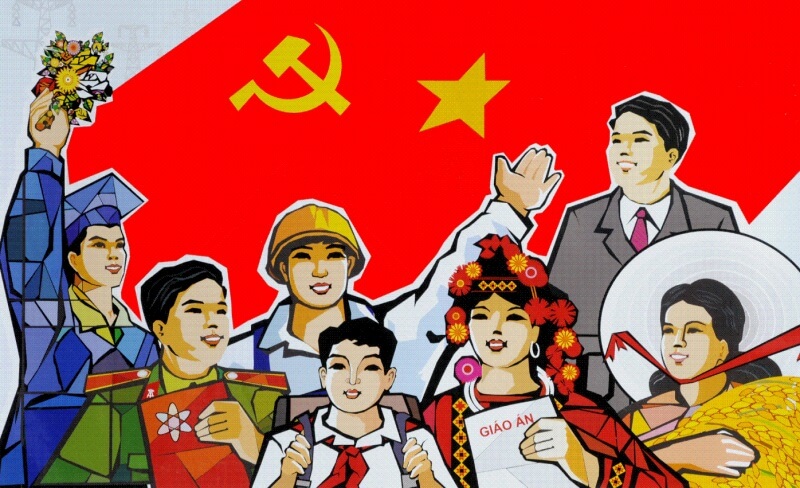
What caused Communism in Vietnam?
Vietnam is a small country but in the past, it had to suffer the Juggernaut of war. In 1930, Ho Chi Minh, under the name of Nguyen Ai Quoc, went to Hong Kong to unite all the 3 parties into the Vietnamese Communist Party, which was later renamed to Indochinese Communist Party. On May 19, 1941, he formed the League for the Independence of Vietnam (abbreviated to Viet Minh Front) at Pac Bo. The Viet Minh was dominated by the Communist Party although it was supposed to be an umbrella group for all parties fighting for Vietnam’s independence.
In a power struggle in 1945, the Viet Minh purged and killed members of rival groups, such as the leader of the Constitutional Party, the head of the Party for Independence, some Trotskyists and Ngo Dinh Diem’s brother, Ngo Dinh Khoi. In July 1946, hundreds of political opponents, notable members of the Nationalist Party of Greater Vietnam, were jailed or exiled after a failed attempt to raise a coup against the Viet Minh Government. In the same year, when Ho Chi Minh traveled abroad, his subordinates jailed around 2,500 non-communist nationalists and forced 6,000 others to flee. All rival political parties were hereafter banned and local governments were purged to minimize opposition later on. The communists eventually suppressed all non-communist parties. North Vietnam became a single-party state under communist rule since then.
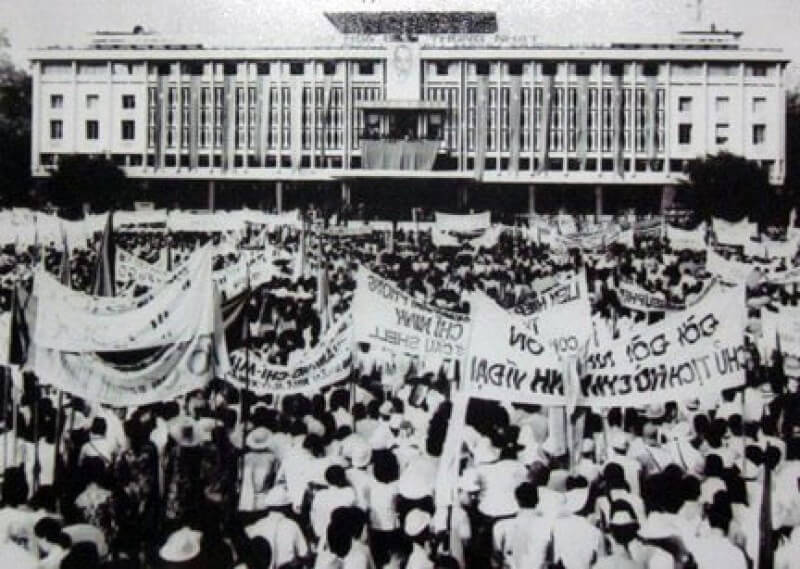
Following three decades of bitter wars, Vietnam was reunified under the communist rule after the North communist forces seized Saigon on April 30, 1975. Vietnam officially became a communist country on July 2, 1976.
April 30 became an anniversary that marked by several festivals around the date and it is called Reunification Day, Victory Day or Liberation Day or the official name of Day of liberating the South for national reunification. This public holiday in Vietnam marks the event when North Vietnamese and Việt Cộng forces captured Saigon(now called Ho Chi Minh City) on April 30, 1975. This signaled the end of the Vietnam War, known in Vietnamese as “Resistance War Against American invasion”. It was the start of the transition period toward reunification, which occurred in the national election for national reunification on July 2, 1976, when the Provisional Revolutionary Government of the Republic of South Vietnam and the Democratic Republic of Vietnam merged, forming the modern-day Socialist Republic of Vietnam.
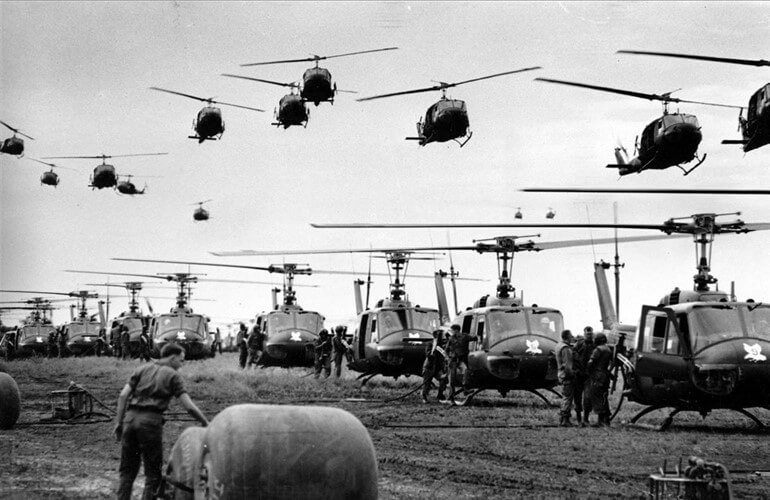
Yet even as the now-united country trumpets the North’s victory over American invaders during a devastating conflict that left more than 3 million Vietnamese and nearly 60,000 American troops dead, bitter rifts over the civil war remain deep and unresolved. 44 years later from Reunification Day, Vietnam still deeply divided over the war.
What happened after April 30th, 1975?
From 1976 to 1986
For the first ten years as a communist country, Vietnam stayed true to the principles of Marxist-Leninist. Both its government and economy were strictly central-controlled. People were put to work under government programs after massive campaigns of collectivization of farms and factories were conducted. Wars’ destruction, inefficient programs, and policies, as well as political isolation, pushed Vietnam into an economic crisis. A decade after unification Vietnam still remained impoverished.
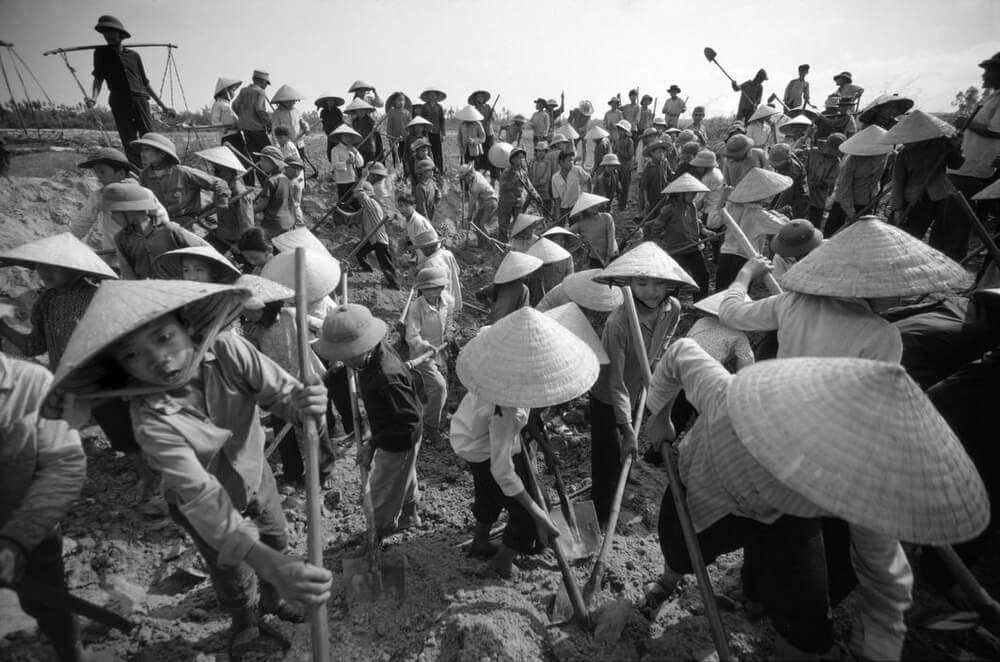
From 1986 to the present
A historic shift came in 1986 when Vietnamese government introduced a series of economic and political reforms best known as “Doi Moi” (Renovation) in an attempt to revive the economy that had been hindered by three decades of war and another decade of economic crisis. Renovation policies shifted the planned centralized economy to the so-called “socialist-oriented market economy” – a multi-sectoral market economy based on state-owned industry. Private enterprise, decontrol, and foreign investment were now highly encouraged.
Thanks to Renovation, Vietnam has seen rapid economic growth in various fields from agriculture, construction to exports and investment with average annual GDP growth of roughly 7% up to the global financial crisis in 2008 and remained more than 5% since 2010, making Vietnam one of the world’s fastest-growing economies. The economic reforms, together with rapid and significant growth, earned Vietnam a place in the World Trade Organization in January 2007, after 12 years of negotiations. Before that, Vietnam has also established diplomatic relations with all countries by 2000.
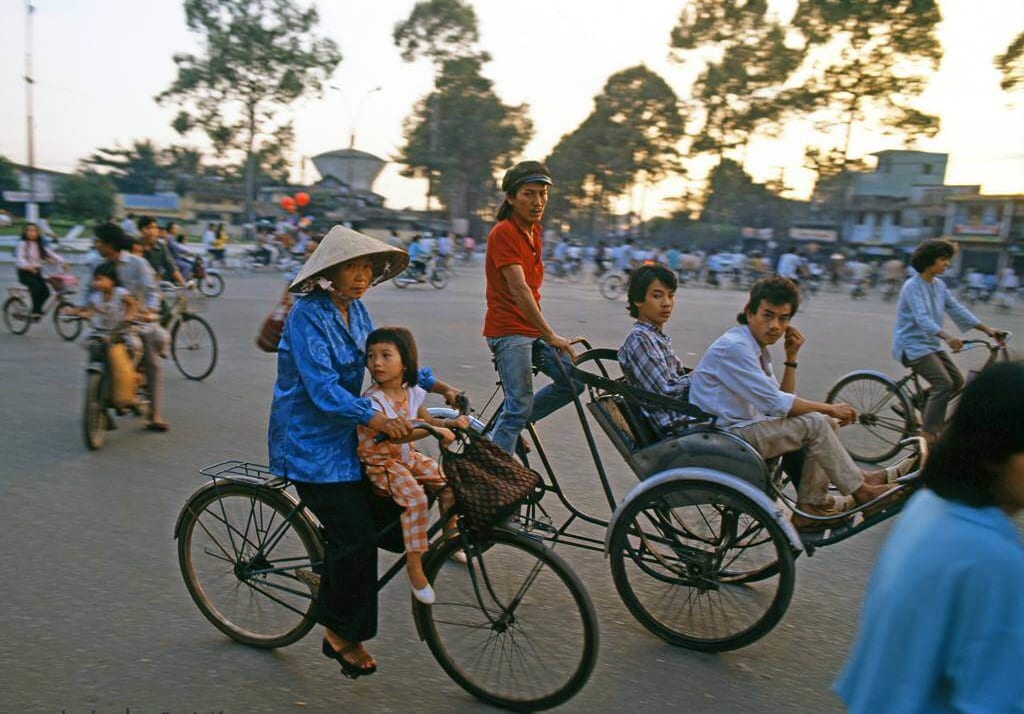
Based on what is happening, one could now argue Vietnam is no longer a purely communist country. Having said that, Vietnamese people do have freedoms in a number of ways including the free market system mentioned above. Vietnamese citizens are now able to start their own businesses as well as purchase goods from other privately owned businesses instead of going through a state-owned company as last time. The number of internet users also rises significantly to 49 million in 2016, which is 52% of its population.
Even though it sounds odd with only one political party, non-party members and non-partisans are allowed to participate in local elections and could possibly gain a seat in the National Assembly. In the 2011 election, out of the 500 seats available in the Parliament, 42 seats were won by independents and non-communist party members, as opposed to the 2007 election where there were only 493 seats available and 100% of those, were won by the Communist Party candidates.
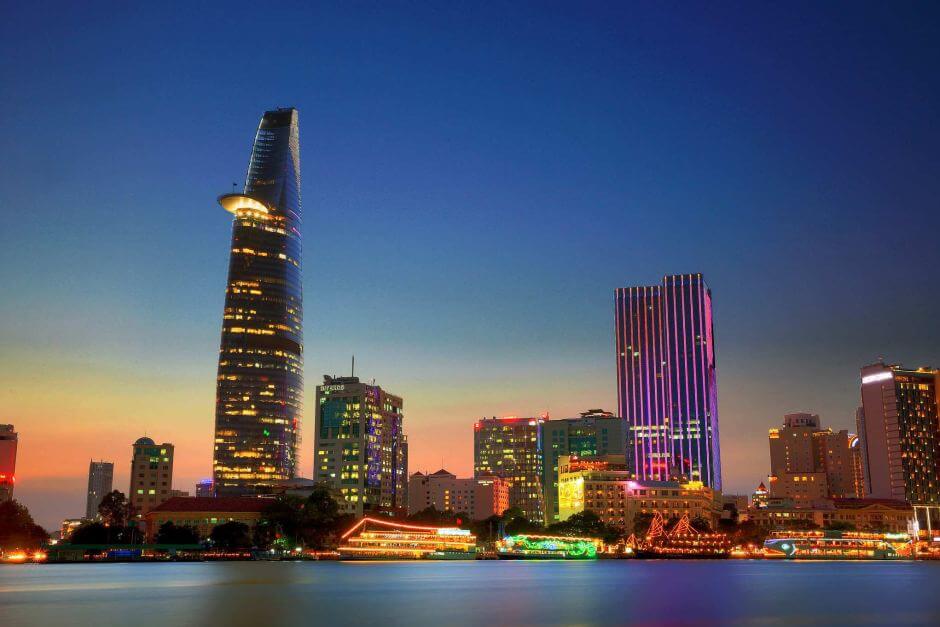
After all, the ruling communist party shows little willingness to give up its monopoly on political power. Its central role over all organs of government remains unchallenged and there is little sign that real democracy is coming to Vietnam anytime soon.
Vietnam, a growing economy
The Communists may have won the war, but the capitalists have won this cosmopolitan city that buzzes with entrepreneurial energy. Ho Chi Minh – the bustling city of 8 million that is still called Saigon is crowded with people studying and working. Young Vietnamese are as a selfie- and Facebook-obsessed as peers around the world, and their focus is on how to take advantage of a growing economy, they pay more attention to the economy than political issues.
Vietnam has been one of the fastest-growing economies in the world in recent decades. In 2022, Vietnam’s GDP grew by 8.0%, one of the highest rates in the world. This growth has been driven by a number of factors, including:
- A young and growing population
- A stable macroeconomic environment
- A focus on export-led growth
- A growing middle class
Vietnam’s economy is expected to continue to grow in the coming years. The World Bank projects that Vietnam’s GDP will grow by 5.5% in 2024 and 6.0% in 2025.
The Vietnamese government is committed to maintaining economic growth and development. The government has implemented a number of reforms to improve the business environment, such as reducing red tape and improving transparency. The government is also investing in infrastructure, such as roads, bridges, and ports.
Vietnam’s economic growth is creating a number of opportunities for businesses and investors. The country’s growing middle class is creating a demand for consumer goods and services. Vietnam is also a major beneficiary of the global shift towards manufacturing in Asia.
However, Vietnam’s economy also faces a number of challenges. The country is facing a shortage of skilled labor. The government is also working to address issues such as corruption and environmental degradation.
Overall, Vietnam is a country with a bright economic future. The country’s young and growing population, stable macroeconomic environment, and focus on export-led growth are all positive factors that will support continued economic growth in the coming years.
How to travel to Vietnam?
How to travel to Vietnam?
1. Visa requirements
Citizens of most countries need a visa to enter Vietnam. You can apply for a visa in advance at a Vietnamese embassy or consulate, or you can obtain a visa on arrival at certain international airports in Vietnam. If you are planning to get a visa on arrival, it is important to check with your local embassy or consulate to make sure that you are eligible.
2. Getting there
The most common way to get to Vietnam is by plane. There are international flights to Vietnam from many major cities around the world. You can also travel to Vietnam by bus or train from neighboring countries, such as China, Laos, and Cambodia.
3. Getting around
Vietnam has a good transportation system, and it is easy to get around the country by bus, train, or plane. Domestic flights are relatively inexpensive and can save you a lot of time if you are traveling long distances. Buses are the most popular way to get around Vietnam, and they are very affordable. Trains are also a good option, and they offer a more comfortable and scenic journey than buses.
4. Where to stay
There is a wide range of accommodation options available in Vietnam, from budget hostels to luxury hotels. You can book your accommodation in advance online or through a travel agent, or you can find accommodation when you arrive in Vietnam.
5. Things to do
Vietnam has a lot to offer visitors, from stunning natural scenery to ancient temples and bustling cities. Some of the most popular tourist destinations in Vietnam include:
- Hanoi: The capital of Vietnam, Hanoi is a charming city with a rich history. Visitors can explore the Old Quarter, visit the Ho Chi Minh Mausoleum, and take a boat trip on Ha Long Bay.
- Ho Chi Minh City: Vietnam’s largest city, Ho Chi Minh City is a vibrant and cosmopolitan metropolis. Visitors can see the War Remnants Museum, visit the Notre Dame Cathedral, and shop at the Ben Thanh Market.
- Sapa: A mountain town in northern Vietnam, Sapa is known for its stunning scenery and colorful hill tribes. Visitors can go trekking in the mountains, visit the Bac Ha Market, and learn about the culture of the Hmong people.
- Hoi An: A charming ancient town in central Vietnam, Hoi An is known for its well-preserved architecture and colorful lanterns. Visitors can explore the Old Town, visit the Japanese Covered Bridge, and take a cooking class.
- Nha Trang: A coastal city in central Vietnam, Nha Trang is known for its beautiful beaches and clear waters. Visitors can go swimming, sunbathing, diving, and snorkeling.
6. Budget
The cost of traveling to Vietnam varies depending on your travel style and budget. However, Vietnam is a relatively affordable country to travel in. You can expect to spend around $20-$30 per day on budget travel and around $50-$70 per day on mid-range travel.
Here are some additional tips for traveling to Vietnam:
- Learn a few basic Vietnamese phrases. This will help you to communicate with locals and get around more easily.
- Be prepared for the heat and humidity. Vietnam is a tropical country, so it is important to dress appropriately and stay hydrated.
- Be aware of your surroundings and take precautions against petty theft.
- Try the local food! Vietnamese cuisine is delicious and affordable.
- Have a great time! Vietnam is a beautiful and welcoming country with a lot to offer visitors.

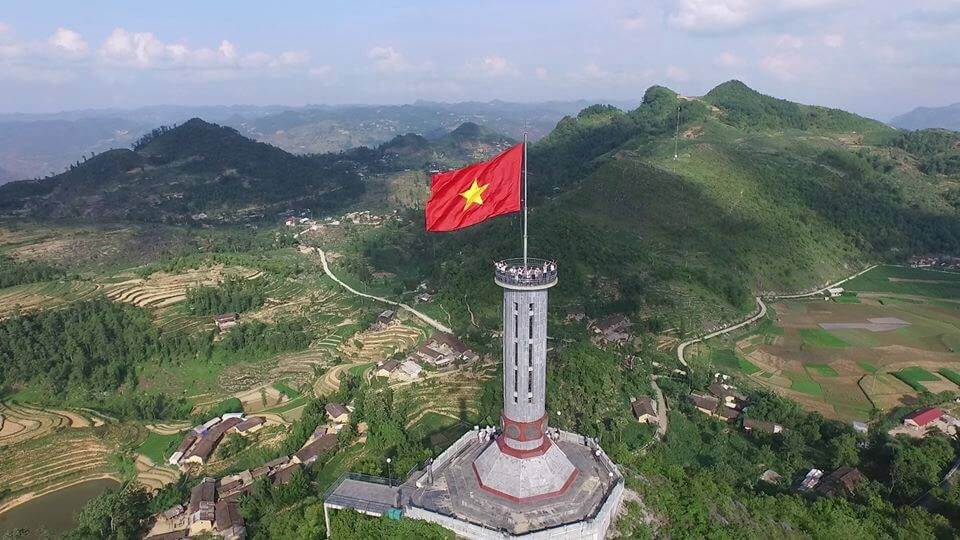
To better define the question here then since i don’t really see a clear answer.
As per the definition of Communism and Marxist ideals can a country like Vietnam truly be seen as a communist nation.
Or is it simply a one party ruled state grounded in Communist/Marxist influence?
As it is with this one does not equal the other which renders the question of by the definitions it truly is so?
Is it even possible to give a clear answer in this?
Vietnam is not Communist, it by no means meets the traditional definition:
A classless, stateless, moneyless society.
However according to Marx a vanguard party (A group made up of the most conscious of the working class) should govern society towards communism, through socialism.
By this means a country can be deemed ‘communist’ as long as it’s goal is to create a Communist society (Classless, stateless & moneyless) even if it is only Socialist.
In my opinion I do not believe that Vietnam is geared towards Communism, the reformist policies of the mid 80s signify this.
The real question lays in if Vietnam is really Socialist anymore.
Socialism being a classless society where the workers own the means of production.
They are 100 percent tolliterany communist country. There is no truly independent company, they are all controlled by the government. The government controls 100 percent of the media . All the political rivals are killed or jailed. People do not have the freedom to protest or say anything negative against the government. Just because there not like China does not mean they are not communist. All communist governments differ just like all democracy countries differ.
Out of the American invasion, and premediated war, a new Vietnam arose. It is now a country filled with many more opportunities, than they ever would have had under any other wannabe occupiers of Vietnam. Had China or Russia invaded Vietnam, it wouldn’t have advanced as much as it has. Vietnam has become the rising Phoenix. I would say they definitely came out the winners, They fought against the most advanced military in the world, and they won. It’s not perfect, but who or what is? Every country and every individual should strive to be better, life is short. Vietnam is a much better place since the Americans came into their country. Other countries have not advanced as much, I would say, most Latin American countries have been stagnant, because of political corruption. I can say the same thing, here in the USA!
the controversy over nams policial identity wiil remain perhaps another 10 years , but die hard van vets still are blinded by putting political loyalty over commons sense. yes so maybe vam human rights history is poor .buts its counterballenced by its capitlaistic grownth. Besideds that , americia has its own faults now. fetenyl epedemics. school shootings, here in phoenix murder rates rank with chicago now. and homeless numbers are now 3.5 million. my city seattle has declined into a innner city guetto with roving gangs.the rich get richer and the poor poorer. the polically elite wealthy run the white house. the trump biden mess. so america dont think we are superior to viet nam. our goal was to allow self determeninaton for nam so alow them to work that out. i was an anti war soldier from 1966-1968. threatned with 3-5 years in leavenworth. but honorable discharged instead. for in reality all polical l labels are abstracts always in remodle . finnaly in short we need to clean up our own act. right now we as whole we are a poor role model for others to follow.